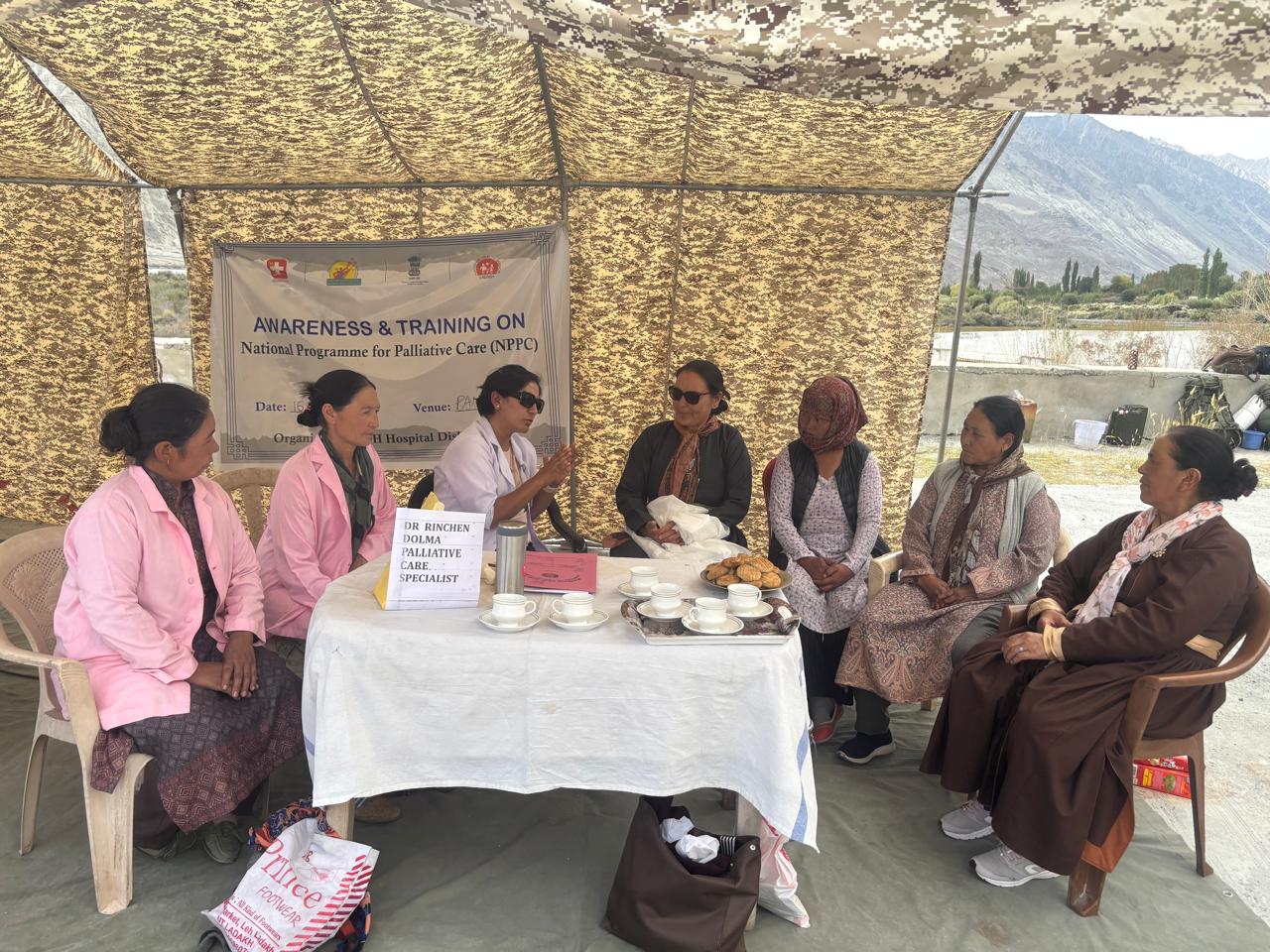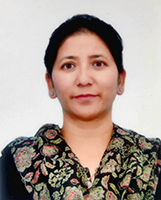Extending Compassion to the Mountains: A Journey into Palliative Care in Ladakh
– Dr. Rinchen Dolma, Union Territory of Ladakh
Introduction
In my years of practice as an Anaesthetist, I always carried a silent desire — to do something meaningful in the realm of pain management. Anaesthesia, by its very nature, deals with relieving pain. But as I stood by patients enduring not just physical pain but also emotional, social, and spiritual suffering, I felt the urge to go beyond.
The opportunity came when I received a call from one of my colleague asking if I was interested in pursuing the Certificate Course in Essentials of Palliative Care (CCEPC), offered by the Indian Association of Palliative Care. I knew this was the path I was destined for. The journey began at Govt Hospital, Gandhinagar, Jammu, under the dynamic guidance of Dr. Sushma Bhatnagar (former Head of the Department, Palliative Care and Onco-Anaesthesia, AIIMS New Delhi).
On completing the theory classes and clearing the examination and assignments, what followed was a transformative 10-day hands-on training at AIIMS Delhi — learning in OPDs, participating in case discussions, joining daily ward rounds, observing pain interventions, orientation at NRC Jhajjar, and even accompanying NGOs on home visits. . Each interaction deepened my conviction that palliative care is not just a service, but a responsibility of humanity.
Current Status of Palliative Care in UT Ladakh
Palliative care in Ladakh is still in its infancy, introduced under the National Programme for Palliative Care (NPPC) in 2021–2022.
A major breakthrough came with my CCEPC certification. This certification enabled me, to obtain RMI status for the SNM Hospital, Leh. With this, SNM Hospital was able to procure morphine tablets and injections, as well as fentanyl patches — medications essential for pain relief and ensuring dignity in end-of-life care.
Our Anaesthesia Department was frequently approached by other specialties for pain management. But due to the heavy workload in the Operation Theatre, we could only address acute needs. The broader aspects of palliative care — psychological, social, and spiritual — remained unattended. This highlighted the need for a dedicated palliative care structure.
Palliative Care in Nubra: A New Chapter
My posting to SDH Diskit, Nubra (120 km from Leh) opened both challenges and opportunities. Nubra, with its breathtaking beauty, is also geographically isolated. Heavy snowfall or landslides often cut off access to Leh, leaving patients and families struggling.
Establishing palliative care here meant not just creating a service, but ensuring that patients could receive dignified care in the comfort of their homes, without the hardship of long travel.
Roadmap for Palliative Care at SDH Nubra:
Together with my colleague Dr. Tenzin Lhazes (Consultant Anaesthetist), and with the strong support of Dr. Phantok (BMO Nubra), we developed a comprehensive roadmap:
- Capacity Building
- Training of CHOs, ANMs, and grassroots health staff at village-level subcentres
- Early identification & reporting of palliative care needs
- Training of Medical Officers and PHC staff through skill-building workshops
- Clinical and holistic palliative care delivery
- Core Palliative Team
- Doctors, dental surgeon, nurses, counsellors, physiotherapists under BMO supervision
- Referral & Coordination
- PHC doctors and CHOs connect with the core team for patient-specific issues
- Continuity of care ensured across facilities
- Community Involvement
- Engaging families, local leaders, and spiritual heads
- Addressing social, emotional & spiritual needs of patients
- Small gatherings for social engagement of patients where feasible
- Record Maintenance
- Training healthcare workers to document services provided and maintain details of patients in need of palliative care
Challenges and Hopes
Our palliative care team in Nubra is currently catering to patients with stroke, COPD, advanced cancers, bedridden elderly, and those facing chronic debilitating illnesses.
The work is deeply rewarding, but challenges are undeniable — harsh terrain, severe winters, limited resources, and workforce shortages. Yet, I firmly believe that palliative care thrives on compassion more than infrastructure.
By training local health workers, empowering families, and involving communities, we are creating a circle of care that no storm or snowfall can break.
A Vision Forward
For Ladakh, palliative care is not merely a medical intervention — it is a cultural and social necessity. In these mountains, where distances are vast and winters long, the comfort of home-based care can transform lives.
My journey into palliative care began with the science of pain relief, but it has grown into something larger — a commitment to heal not just the body, but the soul.
As we continue this journey, my hope is simple yet profound: That no patient in Ladakh should suffer in silence, and that every family finds comfort in knowing that care, compassion, and dignity will always accompany them, even in the most difficult of times.
About the Author:
Dr. Rinchen Dolma is a Palliative Care Champion and a compassionate Anaesthetist from UT Ladakh, whose dedication has helped pave the way for building a network of compassionate care in the challenging terrains of the mountains. She received her training in Palliative Care through the IAPC, offered under the National Palliative Care Policy, and her journey exemplifies how policy can be translated from paper into practice. Dr. Dolma, a Consultant Anaesthetist, is currently posted at SDH Diskit, Nubra, Leh, UT Ladakh.







